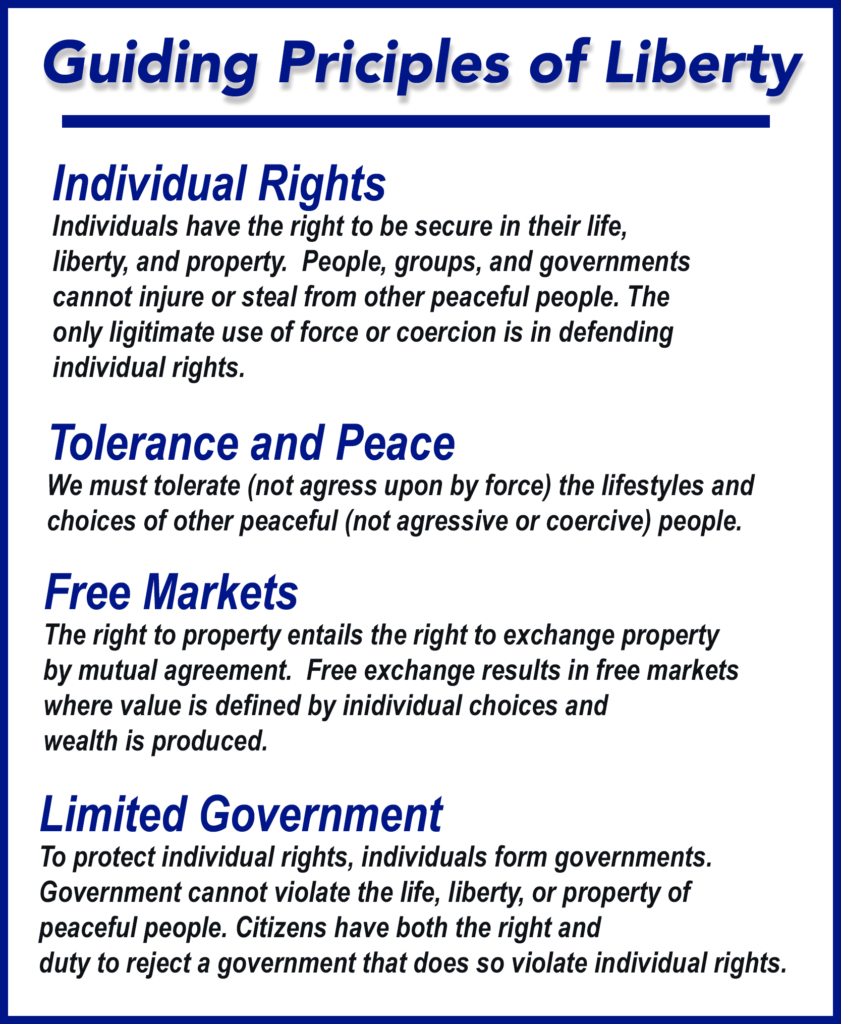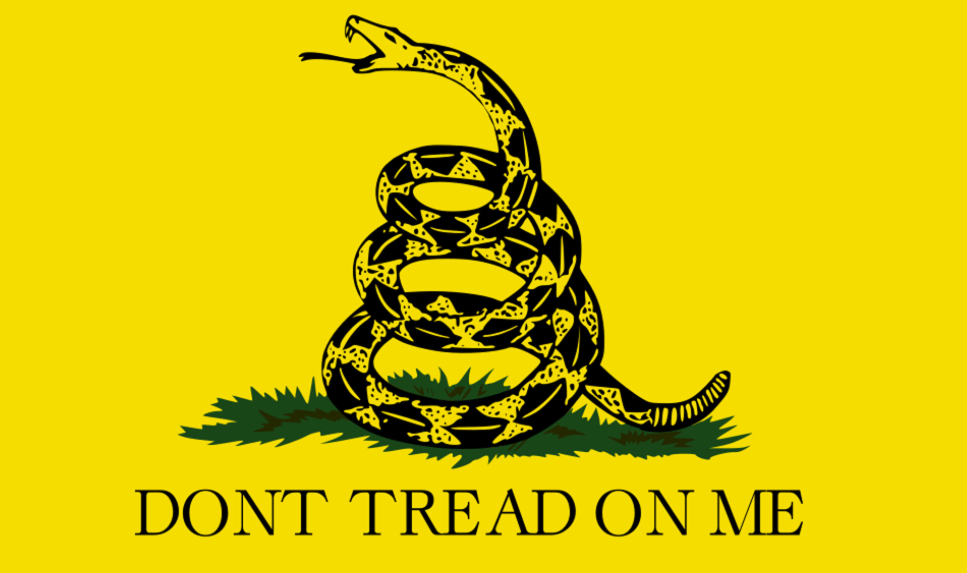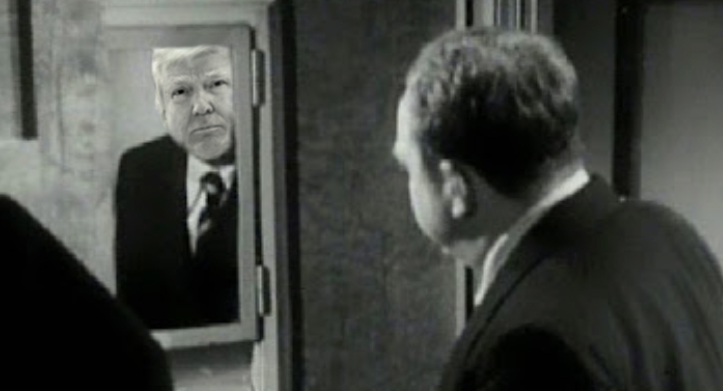

Hi Everyone,
In a recent post I talked about the factors and thinking that led me to change my political views from that of a life long Republican to a Libertarian and how I became convinced that the Libertarian philosophy is a more moral, consistent, and Christian political philosophy (in that follows the moral law of God more closely) than either modern day conservatism or progressivism. I will remind you of a key premise in my argument for Libertarianism:
What is morally wrong for a person to do is also wrong for a group and wrong for a government.
You can read the post by clicking here: Why I Became a Libertarian and What That Is (and Isn’t)
Thinking about issues as a Libertarian – Today: The Minimum Wage
The Usual Lines of Argument and Discourse about the Minimum Wage
The minimum wage is one of the hot items for debate in this election season. Democrats and Progressives generally favor an increase in the minimum wage while Republicans and Conservatives argue against increases in the minimum wage. The media and web are flooded with arguments for and against raising the minimum wage. You are seconds to minutes away using Google from burying yourself in this argument. I’ll save you some of those seconds by providing two example links: Top Ten Arguments for Raising the Minimum Wage and Four Reasons Not to Raise the Minimum Wage. Arguments on both sides appeal to the practical: What would happen if the minimum wage was raised? The ammunition that each side passionately loads into their rhetorical shotgun are arguments about how such an increase would impact poverty, starter jobs, business owners, employment levels, living standards, business health, productivity, etc… Each side quotes expert opinion, history, analysis, and data in support of their position. If you read history these contrary arguments have changed little since the Federal Minimum Wage was establish in June, 1938. It is probably safe to say that these same arguments will be debated ferociously in the foreseeable future.
Prior to becoming a Libertarian I resonated with various aspects of both positions and usually found myself “picking a number” – for example (in today’s debate) – “I think $15 is too high and the problems for the economy would be more than the gains for the poor… I think we should raise it from $7.25 to $9”. This is where we find most politicians today… raising a wet thumb to the wind and picking a number. Bernie – $15. Hillary – $12 and rising. Trump – $7.25 is too low.
The Libertarian Assessment of Minimum Wage
What I love about Libertarian philosophy is that it grounds our consideration of issues like the minimum wage in a philosophy of what is right and moral. It often removes the confusion that results from trying to weight the practical pros and cons of a proposed course of political action. Weighing benefits and limitations is highly subjective and fuzzy. You can readily see this in the minimum wage issue – it quickly becomes a number picking exercise and rarely if ever addresses the more fundamental question of who rightfully determines wages. So, who decides how much I am to be paid for my work?
Libertarians base their answer on the principle of individual rights. Individuals own themselves and the use of their possessions.
If I do not own myself and I do not control the use of my possessions than individual rights vanish immediately and I am just a subject under the control of others with no rights and merely granted privileges. This is the great error of collectivism in all its manifestations: socialism, communism, and sadly tyrannical democracy (two wolves and a sheep voting on dinner).
What are wages? The liberty principles of self ownership and private property give clarity:
Wages are the result of a voluntary agreement to exchange labor for money.
A simple example: I want my lawn mowed and am willing to pay $10 to have it mowed. The gardener want $20 and we settle on $15. The money is my property and the gardener’s time and skill are his. We come to an agreement. Now if my neighbor comes over and says “You are paying to much (or too little)” that would be an opinion that even if interesting or enlightening has no authority. If the gardener’s friend comes over with a gun and says “pay him the $20 or I will shoot you” – that is immoral aggression. Same with the city council, mayor, state governor, or president of the U.S.
What is morally wrong for a person to do is also wrong for a group and wrong for a government.
It is wrong for any outsider to force the results of an agreement between property owners. This is the libertarian tenet of individual rights.
What about collective agreements?
Any voluntary agreement is permissible as long as no aggression (taking stuff, doing injury, restricting liberty) results from that agreement:
Example – Unions. The gardeners in my town are free to form a union and collectively bargain for wages. The can agree to minimum wages they will accept. However – they cannot force any gardener to join their union. They cannot force employers to employ members of their union. They cannot trespass on property of those employers who do not meet their demands. Each of these are aggressive acts which violate individual rights.
Example – Cartels. Employers can voluntarily set wage standards. But again they cannot force businesses to join the cartel or take any aggressive action towards those who do not join.
But won’t greedy business owners exploit the poor?
This is the standard argument for the minimum wage. “Business owners have no interest in paying a fair wage – they are selfish and will force people into low wages they do not want”. The corollary to this assertion is: “So we will force businesses to pay the wages that we want them to”. Aggressive force is wrong – in either case. Business owners that force agreements by theft, violence, deceit, violating agreements, etc.. are indeed wrong and have violated individual rights and are accountable for just penalty and restitution. Likewise, governments that force parties into agreements are similarly and equally wrong and guilty.
In my example – if the $15 is the voluntarily reached agreement and there is no force or deceit involved it is a legitimate agreement. Now if I lied about the size of the job, or failed to pay, or did not honor some aspect of our agreement (contract), I would be violating the individual rights of the gardener. Likewise, if the gardener failed to complete the job as agreed or damaged my property , etc.., my rights that are violated. And if we do not reach an agreement freely than no agreement is made or should be forced upon us by any third party.
Free societies with property rights, enforced contracts, and free and voluntary exchange are far more prosperous than collective societies (socialist or communist). In America 96% make more than the minimum wage and the great majority of the remaining 4% will also exceed the states minimum over time through growth in skills and free exchange. In fact state forced control of wages and prices has always met with shortages, deprivation, and misery. See Venezuela.
Isn’t judging Minimum Wage Laws by this standard of Individual Rights and Non-Aggression cold hearted and socially insensitive?
I include this question because it is a common although unwarranted critique of what it means to be a Libertarian. Not stealing, lying, injuring, maiming, or killing people is the requirement of respecting their human dignity and rights. These are very positive and admirable principles. Unfortunately, people sometimes characterize Libertarianism as selfish, cold, and greedy. Perhaps some Libertarians have behaved this way or given that impression. All I can say is shame on them. But selfishness or uncaring attitudes have nothing to do with Libertarian positions on honoring individual rights and in expecting groups and governments to do the same. Mercy and generosity are certainly virtues to be embraced – but they are not to be practiced or advocated or required using aggression. From my previous blog:
We as people do have a moral obligation to be merciful, generous, and promote peace – but we cannot do so aggressively.
We are accountable to God to so love and care for others. However, as we obey God to be generous, loving, and peace promoting, we must be so without aggressing on any other person and violating their negative rights (the right to not be aggressed against is called a negative right) . As an example, we have no right to steal from a person in order to give to another – even if that person is in great need. We must only give of our own resources and/or request that others give of their resources. But we cannot use force or aggression to compel another to do good. We cannot steal, harm, kill, lie, deceive in order to achieve a good. It has been wisely said: “To reach into another man’s pocket for charitable resources against their will is not charity – it is theft”.
In Conclusion:
Minimum Wage Laws are Wrong and should be removed!
Minimum wage laws violate each of the 5 Libertarian Tenets:
- Individual Rights – Minimum wage laws aggressively force people to deploy their property against their own desires and interests. These laws violate property rights and liberty.
- Tolerance – Minimum wage laws are intolerant of the free decisions and agreements of others. They force one groups desires upon others.
- Peace – Minimum wage laws take from one party for the benefit of another party. This creates conflict.
- Free Markets – Minimum wage laws by force defeat the operations of free exchange by mutual agreement.
- Limited government – Minimum wage laws move government beyond just preservation of individual rights and into active violation of individual rights.
Until next time – Will






